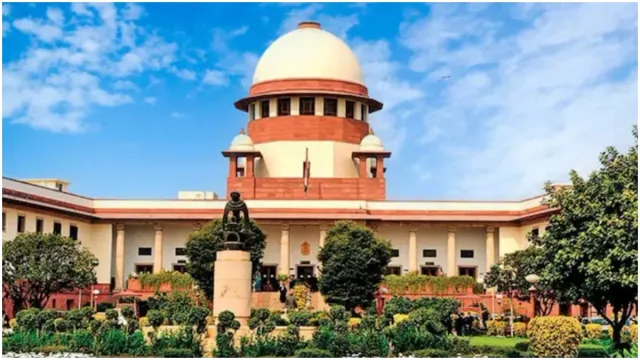- By Soumyaroop Mukherjee
- Thu, 20 Nov 2025 05:03 PM (IST)
- Source:JND
The Supreme Court on Thursday, November 20, refused to put a threshold on the President and the Governors to act on legislative bills. According to the apex court, doing so will amount to the overstepping of judicial boundaries.
It will be "trampling upon the separation of powers", the apex court added. However, the court also observed that they can not sit on the bill indefinitely, granted to them under Article 200.
Key Takeaways In Supreme Court’s Observations:
- The Supreme Court gave its latest opinion in response to the 14 questions asked by President Draupadi Murmu.
- Earlier, a bench comprising two judges of the Supreme Court had given a verdict in the case of Tamil Nadu Governor, thereby setting a threshold of three months for the President and the Governor to approve any bill.
- The President referred a question to the Supreme Court under Article 143 of the Constitution, seeking clarity on whether a Governor must follow the Council of Ministers’ advice when using any of the options available to him under Article 200 while dealing with a Bill placed before him.
- In response to the question of the President, a five-judge bench headed by Chief Justice BR Gavai said that the imposition of the deadline could become a major roadblock in the smooth functioning of the Governor and President as per the Constitution.
ALSO READ: Uttarakhand To Set Up Spiritual Economic Zones In Garhwal, Kumaon To Boost Global Spiritual Tourism
- The apex court said that the Court’s involvement in matters of the Governor and the President can be to a limited extent. However, this will only be applicable if there is no action for a long period without any reason or indefinitely.
- The court also annulled the immunity granted under Article 361, which protects governors from legal action for their powers in case they are not able to oversee the return or clearance of bills within the stipulated time.
- The bench further observed that it was legally not possible for the judiciary to set timelines on the Governor, given that it would override the State’s approval and thereby reduce the position of the Governor to a rubber stamp in the process of converting a bill into law.
- The court also clarified that the President can act on their own discretion and need not consult it on every bill that is tabled in the legislature.
- The apex court also said that the President has a ‘pocket veto’ in case of Constitutional bills. Therefore, in such cases Court cannot invoke Article 142 to declare a deemed assent for such bills
- The governor has the power to pass or withhold any bill according to his discretion. In the process, he is not bound by the aid and advice of the Council of Ministers to sign or withhold approval of the bill.

